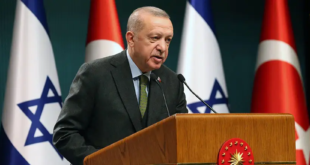PARIS — Lebanese reporters based in Paris — willing to share their experience of the region’s wars and brimming contact books — have set up a one-stop-shop to help foreign colleagues cover the conflict with Israel.
“We thought it would be more useful than organising demos — other people can do that just as well,” explained Elie Masboungi, Paris correspondent of the French-language Lebanese daily L’Orient-Le Jour.
Operating out of the corner of the Lebanese tourism office in Paris, around 15 volunteers have been taking turns since Monday to man a crisis cell and information hotline for other media professionals.
Though now based in Paris, all of the journalists involved — of a range of faiths and outlooks — have experienced previous conflicts in Lebanon.
They know that working in certain parts of the country right now entails big risks, and is next-to-impossible “without tips or contacts”. “You need guides, trustworthy people who know the area, drivers, taxis… We can organise all of that,” said Emilie Hasrouty, a journalist at the Paris-based RMC Moyen-Orient radio.
The aim, she said, was to help French media “show what is happening in Lebanon as much as what is happening in Israel”.
Masboungi agreed: “There are not enough pictures from Lebanon. French TV crews on the ground are having trouble working. A lot of money was poured into coverage of the Iraq war, and it seems the funds have dried up for Lebanon.” The Lebanese tourism office — based on Paris’ glitzy Faubourg Saint-Honore, known for its luxury fashion stores — is normally closed in August but agreed to open its doors to help get the project off the ground.
“Lebanon still exists, but since there is no tourism we might as well put the place to good use,” said Masboungi.
In practice the crisis cell, open six days a week from 10:00am to 6:00pm, is a single grey desk, planted next to a window display vaunting Lebanon’s top tourist attractions such as the ancient sites at Baalbek, Jbeil and Sidon.
Still to come are a television set, computer and high-speed Internet line — but even with such a basic set-up the volunteers are already fielding more than a dozen calls a day.
“Someone might call looking for a Lebanese family who has taken refuge in France, or trying to set up an interview with a Lebanese minister.” “Someone else might want information on the best way to reach Beirut now the main roads have been cut,” said Zeina Al Tibi, who writes for La Revue du Liban, a French-language weekly.
Along with the other volunteers, Tibi spent the first two weeks of the conflict pitting Israel against Shiite Hizbollah fighters in Lebanon, “glued” to her television screen, her stomach knotted in anguish. “At RMC Moyen-Orient, there are around 30 Lebanese workers and we all have stomach aches,” said Hasrouty, whose entire family is in Lebanon. “We are doing our job. We are journalists first and foremost — before being Lebanese. But at a personal level, it isn’t easy,” said the young woman. Masboungi, for his part, has not shaved since mid-July, and has vowed to let his beard grow unkempt “until the last Israeli soldier has left Lebanon”.
“That could take some time,” he sighed.
 Eurasia Press & News
Eurasia Press & News



